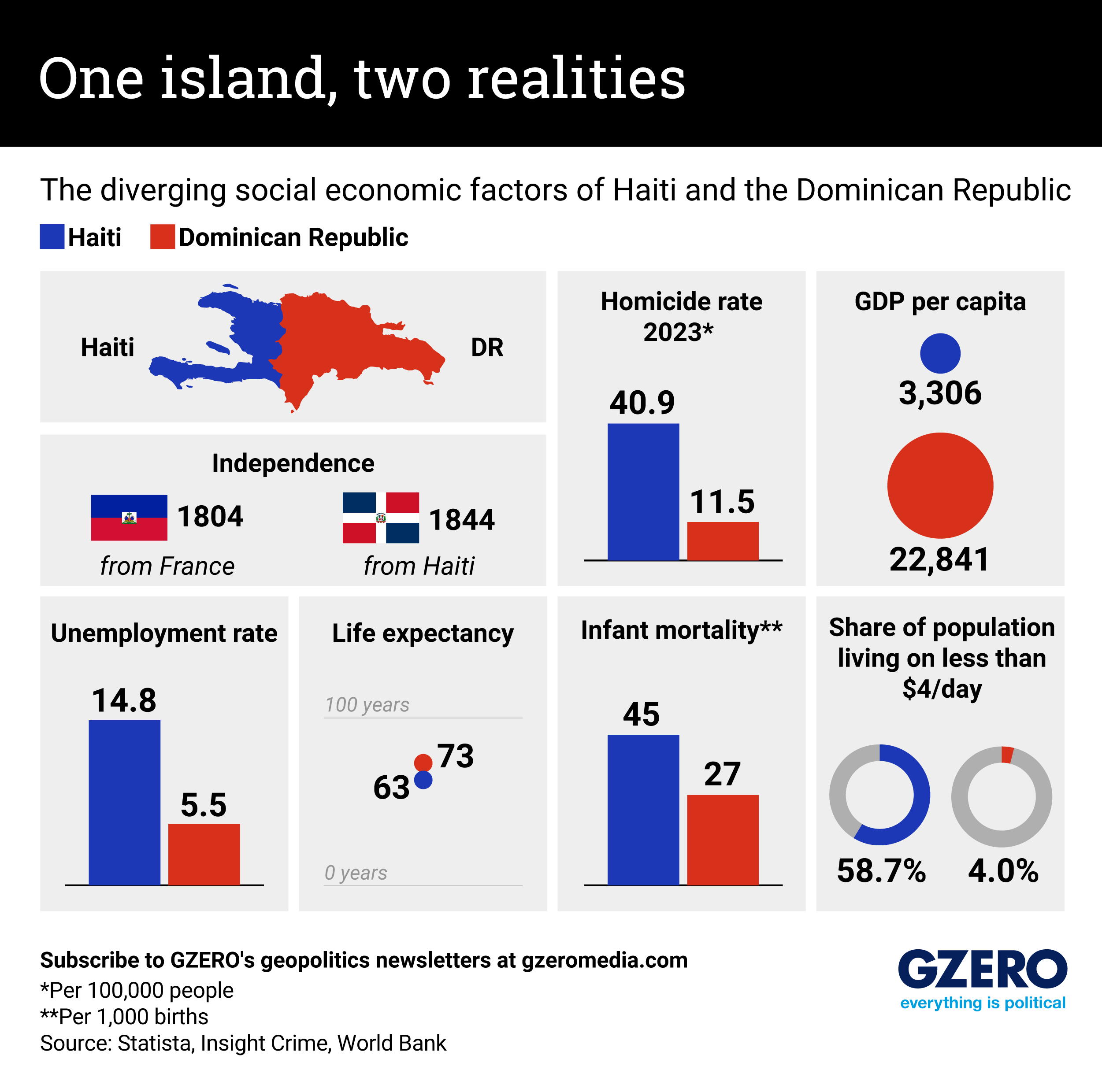April 25, 2024
Haiti, the poorest country in the Western Hemisphere, has been engulfed in violent gang warfare and without a leader since its former prime minister, Ariel Henry, was barred reentry to the country on March 12. Henry formally resigned on Thursday, and a new transitional government was sworn in.
The chaos has triggered a major wave of internal displacement, putting its border with the Dominican Republic, in a state of crisis. The Dominican Republic has doubled down on border security in response, but relations between the two countries, which share the island of Hispaniola, have long been complex.
Haiti was once the richest colony in the world. But under French rule, the island suffered from severe deforestation, leading to soil erosion, reduced agricultural productivity, and increased vulnerability to natural disasters such as hurricanes and earthquakes. When the Dominican Republic gained independence from Haiti in 1844, it introduced reforestation programs that – along with its mountain ranges – have helped it develop a more sustainable agricultural sector. But Haiti's drier land and less fertile soil have made agriculture more challenging.
While the economies of the two countries were comparable in the mid-20th century, the Dominican economy gradually improved over the subsequent decades, while Haiti, long plagued by political instability, has seen its economy deteriorate.
More For You
- YouTube
Gotta maximize sleigh-holder value. #PUPPETREGIME
Most Popular
- YouTube
On Ask Ian, Ian Bremmer breaks down the steady escalation of US pressure on Venezuela and why direct military action is now a real possibility.
US President Donald Trump arrives to announce reciprocal tariffs against US trading partners in the Rose Garden of the White House in Washington, DC, USA, on April 2, 2025.
POOL via CNP/INSTARimages.com
From civil conflicts to trade wars to the rise of new technologies, GZERO runs through the stories that have shaped this year in geopolitics.
Ukrainian serviceman walks near apartment buildings damaged by Russian military strike, amid Russia's attack on Ukraine, in the frontline town of Kostiantynivka in Donetsk region, Ukraine December 20, 2025.
Oleg Petrasiuk/Press Service of the 24th King Danylo Separate Mechanized Brigade of the Ukrainian Armed Forces/Handout via REUTERS
Ukrainian intelligence services assassinated a senior Russian general on the streets of Moscow on Monday, detonating a bomb strapped to his car.
© 2025 GZERO Media. All Rights Reserved | A Eurasia Group media company.
